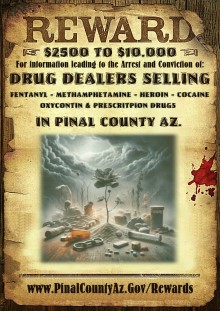The Power of Community Involvement
Encouraging Active Citizenship and Vigilance
Reward programs reinvigorate the spirit of active citizenship by encouraging residents to be more observant and involved in their community. This heightened vigilance is crucial in identifying and reporting illegal activities, from environmental violations to criminal behavior. By offering monetary incentives, these programs not only reward civic responsibility but also emphasize the importance of community members as the eyes and ears on the ground.
Moreover, this approach fosters a sense of collective responsibility and pride. When residents see tangible results from their involvement – such as a cleaner environment or a reduction in crime – it reinforces the belief that their actions make a difference. This empowerment can lead to increased civic engagement in other areas, further strengthening the community fabric.
Strengthening Community-Law Enforcement Relationships
Reward programs act as a catalyst for building stronger relationships between the community and law enforcement. By offering rewards for information, these initiatives provide a platform for residents to contribute directly to crime prevention and law enforcement efforts. This collaboration can lead to a more effective and responsive approach to tackling local issues, as residents provide valuable insights and information that might otherwise be inaccessible to law enforcement.
Such collaboration also fosters mutual trust and understanding. When community members see law enforcement agencies taking their contributions seriously and acting upon them, it enhances confidence in the legal system. This trust is fundamental for the development of effective community policing strategies and for creating a safer community where residents feel protected and heard.
Deterring Crime Through Community Awareness
The presence of a reward program serves as a significant deterrent to potential criminals. When individuals are aware that the community is actively observing and willing to report illegal activities, it raises the stakes for committing such acts. This deterrent effect is crucial in preventing crimes, especially in areas prone to issues like illegal dumping, unauthorized shooting, and drug trafficking.
Additionally, this increased community awareness often leads to a broader cultural shift. As more residents become involved and aware of the issues within their community, there is a collective move towards better practices and behaviors. Over time, this shift can lead to a substantial reduction in the occurrence of illegal activities, contributing to the overall safety and well-being of the community.
Empowering Residents to Protect Their Environment
Environmental crimes, like illegal dumping, not only mar the beauty of our communities but also pose health risks. Reward programs empower residents to take a stand against such actions. By providing a financial incentive, these programs encourage individuals to report environmental violations, leading to cleaner, healthier communities.
This empowerment extends beyond individual actions. As more residents engage in protecting their environment, a community-wide culture of environmental stewardship develops. This culture promotes sustainable practices and encourages everyone to take responsibility for the preservation of their surroundings. In the long term, this leads to a community that not only enjoys a better quality of life but also sets a positive example for neighboring areas.
Creating a Ripple Effect of Positive Community Change
The introduction of a reward program can be the spark that ignites a chain reaction of positive changes within a community. When residents see the impact of their involvement in one area, such as a reduction in crime due to their reporting, they are often inspired to engage more actively in other aspects of community life. This can lead to increased participation in local events, community planning, and other civic activities.
Furthermore, the success of a rewards program in tackling specific issues can serve as a model for addressing other challenges within the community. It demonstrates the power of collective action and shows that when residents, law enforcement, and local authorities work together, significant improvements can be achieved. This realization can transform the community’s approach to problem-solving, leading to a more proactive, collaborative, and thriving environment.





